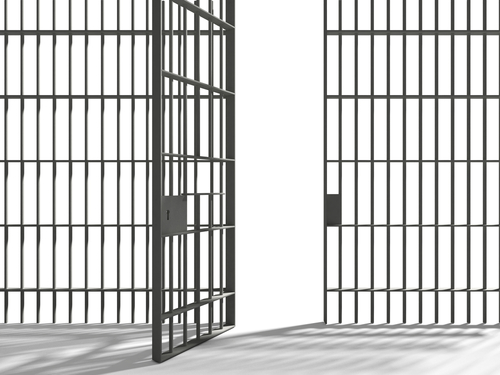Judge exonerates Missouri prisoner after 43 years in prison; this law made it possible

Image from Shutterstock.
A Kansas City, Missouri, man who spent 43 years in prison for a triple murder has been released after a judge ruled Tuesday that he was wrongfully convicted.
Kevin Strickland, a 62-year-old Black man, had been convicted by an all-white jury based on testimony from the sole survivor, who later said she was mistaken and asked the Midwest Innocence Project for help.
The Washington Post, the Kansas City Star and the Associated Press (here and here) have coverage.
Dozens of fingerprints at the crime scene did not belong to Strickland, his family members said he was home watching television at the time in question, and the admitted perpetrators said he was not there.
The exoneration is the longest confirmed wrongful conviction case in Missouri and the seventh-longest in the nation, according to the Kansas City Star.
Jackson County, Missouri, prosecutor Jean Peters Baker, had concluded that Strickland was innocent after a review by her office. She sought an evidentiary hearing to obtain Strickland’s release using a new Missouri law after the Missouri Supreme Court turned down his petition for release.
According to the Associated Press, the new law authorizes prosecutors to seek a hearing when they have new evidence of a wrongful conviction. A judge determines whether to release the inmate.
Judge James Welsh ordered Strickland’s release, writing that his conviction “is so undermined that it cannot stand.”
Before lawmakers passed the law, the Missouri Supreme Court had ruled in a different case that trial and appeals courts could not consider a motion for a new trial filed decades after a conviction became final.
Strickland will not receive any compensation from the state because Missouri’s compensation law only allows payments to prisoners who prove their innocence through a DNA testing statute, according to the Kansas City Star. Strickland did not rely on the statute.
Strickland could receive compensation, however, if the state legislature passes a bill ordering the state to pay or if he is able to prove in a lawsuit that police or prosecutors acted in bad faith. Such a lawsuit is “an uphill battle,” according to the Kansas City Star.
Kansas, on the other hand, pays the wrongfully convicted $65,000 for each year of their imprisonment.
Strickland, who uses a wheelchair, told the Washington Post that, after his release, he hoped to visit the gravesite of his mother, who died in August.
“If we don’t stop at the gravesite first, I’m going to get out of the car and I’m going to try to make it there on my hands and knees,” he said.



